What makes Bhojpuri one of the fastest growing Indian languages? Linguists believe that the answers go beyond the spoken word
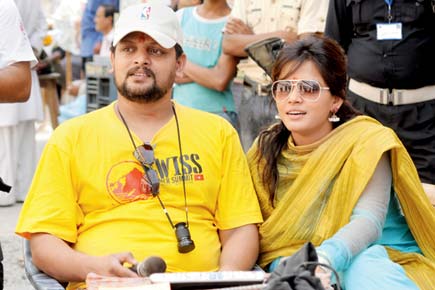
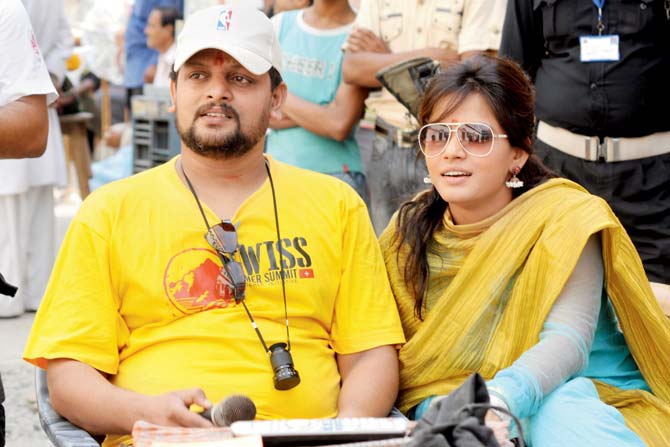
Nitin and his actor-sister Neetu Chandra produce films that address social issues under the Champaran Talkies banner
ADVERTISEMENT
Last month, linguist Ganesh Devy, also founder director of the Bhasha Research and Publication Centre, Vadodara, released 11 volumes of the People's Linguistic Survey of India (PLSI), touted to be the world's largest linguistic survey. Despite some of the grim findings -- 4,000 of the world's 6,000 languages face potential threat of extinction, 10 per cent of which are spoken in India -- there emerged a glimmer of hope. Among Samtali (Odisha), Bheli (Rajasthan), Mizo (Mizoram) and other Indian languages, that had shown an upward trend, Bhojpuri topped the list. "In the 21st century, communication is the primary vehicle for survival and growth of a language," says Devy, who did not go about doing a "door to door" data collection for the survey that was taken up in 2010. "For that we required extensive manpower, which we did not have," he says. Devy's analysis is, however, based on examining the dynamics of the language. "In technical terms, we call it domain or individual components. We analysed aspects of folklore, terminology, syntax, economy, social interaction, entertainment and literature," he says. Which brings us to the question: What is it that the Biharis are doing right, making Bhojpuri a rapidly developing language?
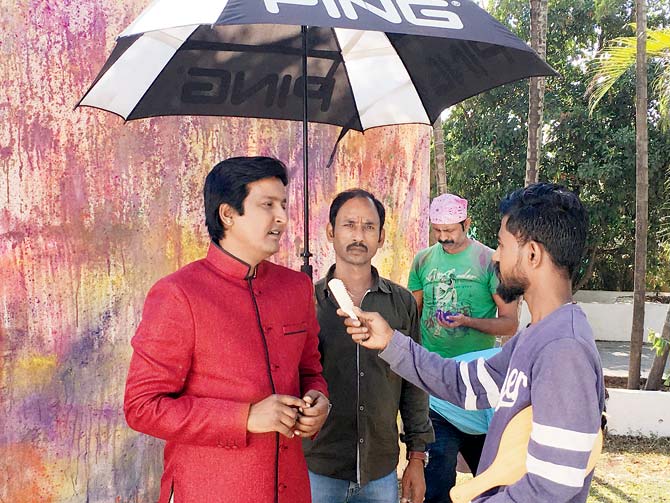
Identity crisis
According to the 2001 census of India, there are 33 million people who speak Bhojpuri under the Hindi language sub-family. Furthermore, there are close to six million Bhojpuri speaking people in Nepal, Mauritius, Fiji, Suriname, Guyana, Uganda, Singapore, Trinidad and Tobago, Saint Vincent and the Grenadines, making it the third most widely spoken Indian language outside the country. What's interesting, he says, is that despite the migration, the diaspora has not only clung on to the language, but is helping spread its tentacles. "Over a decade ago, you could say there was a stigma attached to Bhojpuri which was seen as a language of the poor. There was a sense of shame in claiming it as mother tongue, so people would identify more with Hindi. That shame has disappeared," says Devy.
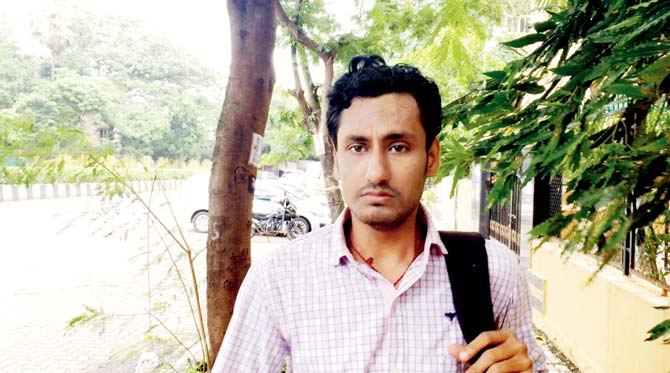
Stills from NeoBihar, a Bhojpuri YouTube channel launched by Nitin Chandra in October 2016, to generate sleaze-free content. The videos are shot in Mumbai
Dumraon-born filmmaker, Nitin Chandra, who has been in Mumbai for the last few years, recalls his graduation days in Delhi, when he was confronted with an uncomfortable reality. "I was aghast to see that people in Delhi used the term Bihari as an expletive. I was 19 years old and did not know how to react to the newly found abuse, which was also my identity," he says, adding that he later noticed that many Biharis living in metros felt a shame in identifying themselves with the region. "Later, I made a documentary on the plight of Bihar which was more like an introspection for me," he says. Chandra is now known for making films that address social issues under the banner Champaran Talkies. In 2016, his film Mithila Makhan, won the best Maithili Language Film at the 63rd National Film Awards, becoming the first film from Bihar to do so. His 2011-directorial debut, Deswa, was also feted on the international film circuit for its gritty portrayal of the state of affairs in Bihar.
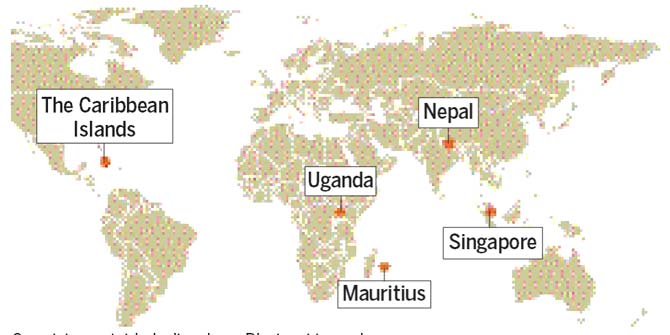
Countries outside India where Bhojpuri is spoken
Like most young, urban Biharis, Chandra, however, is not proud of the quality of films coming from the state. He calls it the 'prostitutionalisation of Bhojpuri by Bhojpuri filmmakers.' "A language is more than a spoken tool. It represents the history and civilization of its people." Chandra, therefore, has resolutely stayed away from sleaze in his films. Last October, he launched Neo Bihar, a YouTube channel that generates original video content. The description on the home page reads: Needless to say, the content from Bihar/Eastern UP is dominated by vulgarity and we want to balance things by adding decent content. Their latest series, Kill Your Mother Tongue, is a fictional capsule created for UPites who have for years tried to rid themselves of an accent. "It is a satire on the situation," he says.
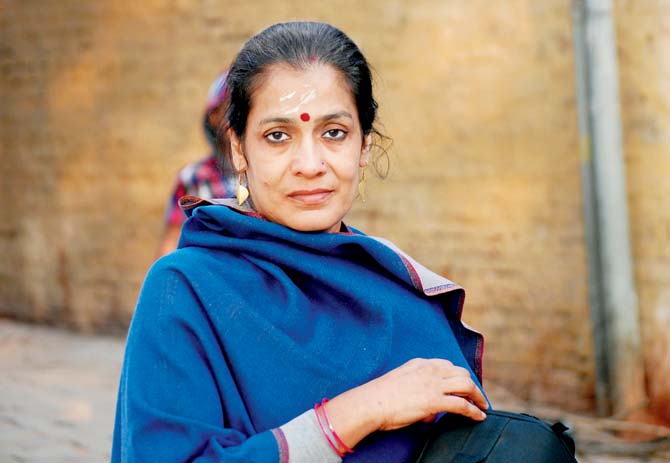 Vibha Chauhan, Associate Professor Reader in the Department of English, Zakir Husain College
Vibha Chauhan, Associate Professor Reader in the Department of English, Zakir Husain College
Not official yet
Vibha Chauhan, associate professor reader in the Department of English, Zakir Husain College, University of Delhi, has studied the language extensively, and is currently working on Kissa-Kahani: Folk Tales of Eastern Uttar Pradesh, which are English translations of Bhojpuri oral narratives. While Chauhan agrees that Bhojpuri is becoming stronger, she feels the movement goes beyond language per se. "Languages don't exist in isolation. I think it's the whole culture that's becoming dominant. It's clearly connected to the increasing political space that the community is occupying, and growing diaspora." She gives the example of Chhat puja, which used to be popular only in Eastern UP, but is now celebrated in several parts of India.
City-based Bihari music composer Ashutosh Singh, however, says the sense of pride is restricted to the fringes. "Bihari children are not consuming Bhojpuri content, whether it's music, cinema or literature. They cannot identify with it," he says. Both Singh and Chandra feel the situation will improve if Bhojpuri is made compulsory across UP schools at least till a certain grade. 'Why do you think children in Mumbai understand Marathi? It's because it's part of the school curriculum," says Chandra. He's also lobbying for the inclusion of the language in the Eight Schedule of the Indian Constitution, to make it one of the official languages of the country. "Bhojpuri is over a thousand years old, and has a wealth of literature. Historically, it was written in the Kaithi script, but since 1894, Devanagari has served as the primary script," says Chandra.
 Subscribe today by clicking the link and stay updated with the latest news!" Click here!
Subscribe today by clicking the link and stay updated with the latest news!" Click here!






